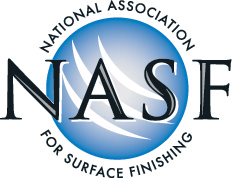| Presented in Partnership with: | |||
 |
 |
 |
 |
Search Results
The 40th William Blum Lecture, Faraday’s Children (and Nickel)
Author: Dr. George A. DiBari
Issue: , 1999This lecture will also include information on nickel anode materials. It reviews the anodic behavior of nickel for the new generation of electroplaters who may not be familiar with the history and development of current anode practices. The passivity of nickel in chloride-containing electroplating solutions and the correlation between electrochemical and physical dissolution characteristics provided the rationale for the development of sulfur-containing electrolytic nickel. Sulfur-containing electrolytic nickel has all the attributes of the ideal anode material, except that it forms a small amount of residue that requires the use of anode bags. Finding a sludge-free nickel anode material that would eliminate the need for bagging has proved elusive. The lecture will also examine nickel and nickel alloy plating. It looks first at the resurgence of automotive decorative nickel plating in North America. If nickel electroplating is to survive, new processes and applications are necessary. Unique applications and processes may emerge from electrofabrication and nickel alloy plating, two topics that will be reviewed.
 |
 |
 |
 |
 |
| Home | Subscribe | Regulations | Compliance Assistance | News | Resources | Resource Locators | Directories | Online Training | About | Search | Contact | NASF.org |
The information contained in this site is provided for your review and convenience. It is not intended to provide legal advice with respect to any federal, state, or local regulation.
You should consult with legal counsel and appropriate authorities before interpreting any regulations or undertaking any specific course of action.
Please note that many of the regulatory discussions on STERC refer to federal regulations. In many cases, states or local governments have promulgated relevant rules and standards
that are different and/or more stringent than the federal regulations. Therefore, to assure full compliance, you should investigate and comply with all applicable federal, state and local regulations.
